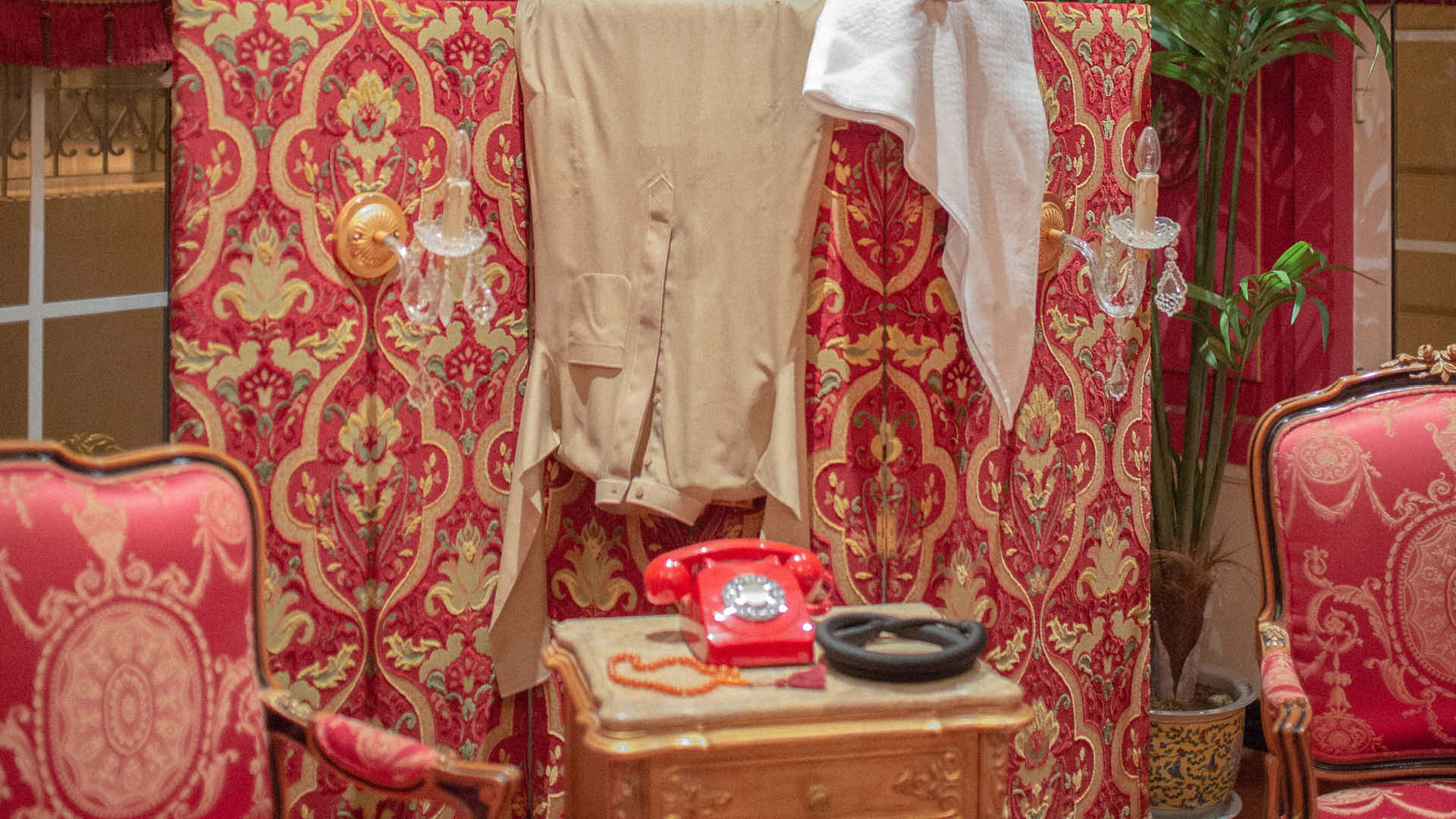- Arbitration
- Banking & Finance
- Capital Markets
- Commercial
- Competition
- Construction & Infrastructure
- Corporate / Mergers & Acquisitions
- Corporate Services
- Corporate Structuring
- Digital & Data
- Dispute Resolution
- Employment & Incentives
- Family Business & Private Wealth
- Innovation, Patents & Industrial Property (3IP)
- Insurance
Find a Lawyer
Book an appointment with us, or search the directory to find the right lawyer for you directly through the app.
Find out more
Real Estate & Construction and Hotels & Leisure
Real estate, construction, and hospitality are at the forefront of transformation across the Middle East – reshaping cities, driving investment, and demanding increasingly sophisticated legal frameworks.
In the June edition of Law Update, we take a closer look at the legal shifts influencing the sector – from Dubai’s new Real Estate Investment Funds Law and major reforms in Qatar, to Bahrain’s push toward digitalisation in property and timeshare regulation. We also explore practical issues around strata, zoning, joint ventures, and hotel management agreements that are critical to navigating today’s market.
As the landscape becomes more complex, understanding the legal dynamics behind these developments is key to making informed, strategic decisions.


2025 is set to be a game-changer for the MENA region, with legal and regulatory shifts from 2024 continuing to reshape its economic landscape. Saudi Arabia, the UAE, Egypt, Iraq, Qatar, and Bahrain are all implementing groundbreaking reforms in sustainable financing, investment laws, labor regulations, and dispute resolution. As the region positions itself for deeper global integration, businesses must adapt to a rapidly evolving legal environment.
Our Eyes on 2025 publication provides essential insights and practical guidance on the key legal updates shaping the year ahead—equipping you with the knowledge to stay ahead in this dynamic market.
The leading law firm in the Middle East & North Africa region.
A complete spectrum of legal services across jurisdictions in the Middle East & North Africa.
-
Practices
- All Practices
- Banking & Finance
- Capital Markets
- Commercial
- Competition
- Construction & Infrastructure
- Corporate / Mergers & Acquisitions
- Corporate Services
- Corporate Structuring
-
Sectors
-
Country Groups
-
Client Solutions
Today's news and tomorrow's trends from around the region.
17 offices across the Middle East & North Africa.
Our Services
 Back
Back
-
Practices
- All Practices
- Banking & Finance
- Capital Markets
- Commercial
- Competition
- Construction & Infrastructure
- Corporate / Mergers & Acquisitions
- Corporate Services
- Corporate Structuring
- Digital & Data
- Dispute Resolution
- Employment & Incentives
- Family Business & Private Wealth
- Innovation, Patents & Industrial Property (3IP)
- Insurance
- Intellectual Property
- Legislative Drafting
- Private Client Services
- Private Equity
- Private Notary
- Projects
- Real Estate
- Regulatory
- Tax
- Turnaround, Restructuring & Insolvency
- Compliance, Investigations and White-Collar Crime
-
Sectors
-
Country Groups
-
Client Solutions

- Law Firm
- /
- Insights
- /
- Law Update
- /
- The Bahrain Edition
- /
- Bahrain’s Anti-Commercial Concealment Campaign – An Introduction
Bahrain’s Anti-Commercial Concealment Campaign – An Introduction
Layla Alalawi

Photograph by Ali Al Shehabi
In December 2020, the Ministry of Industry Commerce and Tourism (“MOICT”) (in co-operation with the Bahrain Chamber of Commerce and Industry (BCCI)) launched the ‘Joint National Campaign Against Commercial Concealment’, as part of a wider package of initiatives and measures to promote a fairer and more competitive environment, in line with the Bahrain Economic Vision 2030 (the “Anti-Concealment Campaign”). The Anti-Concealment Campaign and related enforcement action is based on the interpretation of Bahrain Decree Law (1) of 1987 Regarding the Sale and Lease of Commercial Stores; and Bahrain Legislative Decree (27) of 2015 Promulgating the Commercial Registry Law.
Statistical data quantifying commercial concealment in Bahrain is scarce, but has been quantified in neighbouring countries such as the Kingdom of Saudi Arabia (“KSA”). A 2014 study entitled “The relationship between the sponsorship (Kafala) system and concealed trade” found that 30% of foreign residents in KSA were business owners working under commercial concealment. Such indicators of commercial concealment can be seen in Bahrain and other Gulf Cooperation Council (“GCC”) countries alike.
The Anti-Concealment Campaign and related enforcement action is based on interpretation of Bahrain Decree Law (1) of 1987 Regarding the Sale and Lease of Commercial Stores; and Bahrain Legislative Decree 27 of 2015 Promulgating the Commercial Registry Law.
The campaing refers to commercial concealment as the process by which a non-Bahraini national practices a restricted commercial activity under a commercial registration (“CR”). Restricted commercial activities are those that prohibit non-Bahraini (or non-GCC) ownership, or limit the percentage of foreign ownership to forty nine percent (49%) or one hundred percent (100% as the case may be (“Restricted Activity”). In this regard, the Anti-Concealment Campaign refers to commercial concealment conducted in various forms, the most prevalent form being where a Bahraini (or other GCC) national rents or sells their CR or activity licenses to a non-Bahraini person. An additional example of commercial concealment is where a Bahraini (or other GCC) national assigns a non-Bahraini national to run their CR in exchange for a sum of money, without the involvement of such Bahraini (or other GCC) national. Commercial concealment may also take place where the renting or selling of a commercial address is undocumented.
Informal feedback from the MOICT appears to indicate the following potential rulings in the following scenarios:-
- Scenario 1: A corporate entity in Bahrain practices a Restricted Activity that necessitates a minimum of fifty one percent (51%) Bahraini or GCC ownership, and has a Bahraini (or other GCC) shareholder who is the legal owner of (for example) fifty one percent (51%) of the shares in the company, with the foreign party owning (for example) forty-nine percent (49%) of the shares in the company. Such arrangement is unlikely by and of itself to constitute commercial concealment. However, any given situation will be judged on its merits and assessed on a case-by-case basis, depending on the specific factual matrix of circumstances, in particular if the Bahraini or GCC owner does not have a right to be involved in the day-to-day management of the company and/waives the right to receive his or her entitlement to profit in exchange for a fixed periodic fee; and
- Scenario 2: A corporate entity in Bahrain practices a Restricted Activity that necessitates a minimum of one hundred percent (100%) Bahraini or GCC ownership, and has a Bahraini (or other GCC) shareholder who is the legal owner of one hundred percent (100%) of the shares in the company, but purports to hold such shares on behalf of (and at the direction of) a foreign party in return (for example) for payment of a fixed periodic fee. Depending on the specific facts. such arrangement may well constitute commercial concealment.
The MOICT has confirmed that where commercial concealment is discovered, the MOICT has the right to take actions including administrative closure of the CR address until the legal status of the CR is altered. Where commercial concealment is repeated, the MOICT can impose a penalty of a period not exceeding one (1) year of imprisonment and / or a fine not exceeding one thousand Bahraini Dinars (BHD 1,000). In extreme cases, the MOICT may strike off the CR and impose a complete closure of the CR. The penalties will be applicable to either the Bahraini (or other GCC national) as well as the foreign party or parties that are involved in commercial concealment.
It is also important to note that whilst the Bahrain authorities are increasing their focus on the detection and prevention of commercial concealment in Bahrain, the government also continues to take commendable steps to enhance corporate governance and encourage and liberalise the foreign direct investment regime in Bahrain. These include, the MOICT incentivising foreign investments by allowing one hundred percent (100%) foreign ownership in most service-based companies and the publication of Resolution No. (17) of 2018 underlining conditions which allow the foreign ownership restriction to be put aside where certain conditions are met. These conditions include, the company being present in at least three international markets; the capital of the parent company being at least twenty million Bahraini Dinars (BHD 20,000,000) or its equivalent in foreign currency; and the capital of the Bahraini company being at least two million Bahraini Dinars (BHD 2,000,000).
Further liberalisation of foreign ownership restrictions with reference to a host of commercial activities has been facilitated by the MOICT’s recent implementation of Prime Minister Resolution No. (40) of 2021 – as a result, various commercial activities which previously necessitated a minimum of 51% GCC ownership (meaning that any Bahrain company proposing to practice such commercial activities would need to be owned 51% by GCC nationals or an entity set up in a ‘onshore’ GCC jurisdiction (which is in turn owned 100% by GCC nationals) may, depending on the commercial activity in question, be practiced by:-
– Any entity incorporated in Bahrain which is 100% foreign owned, provided that certain capitilisation requirements are met (a total of 178 different commercial activities have been amended to fall within this category); or
– Any entity incorporated in Bahrain that is at least 1% owned by GCC nationals or an entity set up in an ‘onshore’ GCC jurisdiction (which is in turn owned 100% by GCC nationals).
In introducing the Anti-Concealment Campaign, Bahrain furthers its strategic goal to address a primary detriment to its economy, seeking to minimising unfair competition and stabilising markets as part of Bahrain’s Economic Vision 2030. By shedding light on how leasing CR’s limits growth and may lead to the monopolisation of some commercial activities, the MOICT are optimistic that Bahraini traders and foreign businesses alike will consider alternative means of business regulated and permitted under the regulatory regime in particular taking into light the continued increased liberalisation of the Bahaini FDI regime. Bahrain nonetheless continues to confirm its place as a leading hub for foreign investors to role out into the GCC market.
For further information please contact Foutoun Hajjar or Rad El Treki or Layla Alalawi.
Stay updated
To learn more about our services and get the latest legal insights from across the Middle East and North Africa region, click on the link below.


